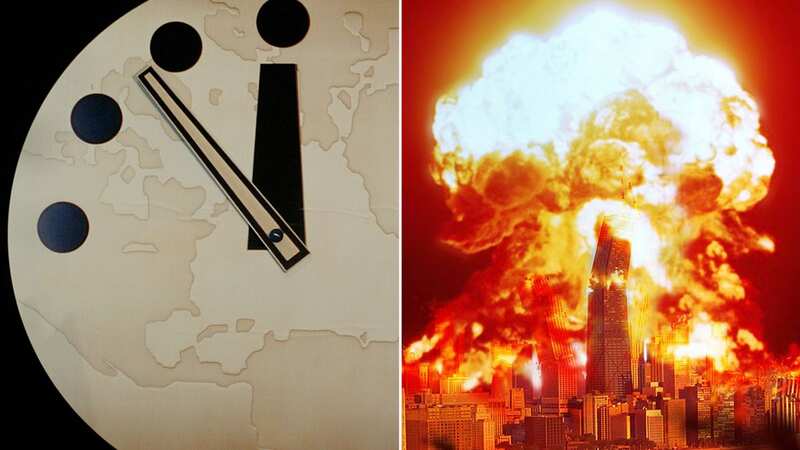Current time of Doomsday Clock and the frightening reason behind it
On January 23, the Bulletin of the Atomic Scientists will be announcing the Doomsday Clock, giving citizens of the world a grim idea of just how close we really are to catastrophe.
This clock has been used to measure the likelihood of man-made disaster since 1947, with midnight serving as a metaphor for the end of the world. Each year, a team of scientists determine how close we are to midnight, bearing in mind factors such as climate change and the looming threat of nuclear weapons.
The likelihood of impending doom is measured in terms of 'minutes to midnight', and last year things came perilously close. Indeed, according to the Bulletin of the Atomic Scientists, as of January 23, 2023, we are currently just 90 seconds to midnight - the closest we've ever been.
How is the time decided?
The clock is maintained by members of the Bulletin of Atomic Scientists' Science and Security Board, a group which includes 10 Nobel laureates. The higly knowledgable team monitor risks to humanity, looking at everything from nuclear proliferation to developments in artificial intelligence, and host an annual news conference to announce whether the time on the Doomsday Clock will be adjusted.
Once a new time is announced, they will then explain how they came to their decision. Last year, the group warned that we are navigating a time of 'unprecedented danger', with the war in Ukraine proving to be a sigfnificant factor. According to their statement: "The war in Ukraine may enter a second horrifying year, with both sides convinced they can win. Ukraine's sovereignty and broader European security arrangements that have largely held since the end of World War II are at stake. Also, Russia's war on Ukraine has raised profound questions about how states interact, eroding norms of international conduct that underpin successful responses to a variety of global risks.
 Doomsday Clock now 90 seconds away from apocalypse as world on edge of disaster
Doomsday Clock now 90 seconds away from apocalypse as world on edge of disaster
If you can't see the poll, click here
"And worst of all, Russia’s thinly veiled threats to use nuclear weapons remind the world that escalation of the conflict—by accident, intention, or miscalculation—is a terrible risk. The possibility that the conflict could spin out of anyone's control remains high."
Will the Doomsday Clock go forwards this year?
When the clock was first established, two years after the end of World War II, the time was set to seven minutes to midnight. The furthest we've been from global catastrophe was back in 1991, when the time was set at a far less alarming 17 minutes to midnight.
Unfortunately, over the course of the past decade, the arms of the Doomsday Clock have been gradually edging closer and closer to midnight, signifying a steep increase in the likelihood of an international catastrophe. The clock is currently as close to midnight as it has ever been - will it creep even closer in 2024?
You can catch Nuclear Armageddon: How Close Are We? at 9pm, January 18 on BBC Two
Read more similar news:
Comments:
comments powered by Disqus


































